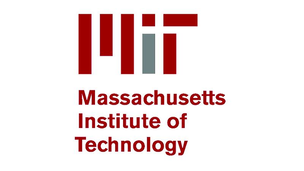 MIT is in my blood. No, I’m not an alum. No, I’m not even a big math and science person. But MIT is where my parents met many decades ago. My dad used to take newborn me to the MIT library while he finished his dissertation. I knew the words to the MIT fight song, or “Beaver Call,” before I had any idea what I was saying (sample lyrics: Cosine, secant, tangent, sine, 3 point 1 4 1 5 9!). And when I was in grad school just across the Charles River, my friends and I would take full advantage of the MIT library’s reciprocity agreement and borrow all their books on literature and poetry. So even though I didn’t go to MIT, and I only have a few students who apply there each year, I find myself paying a little extra attention to it. As an alumna, my mom gets regular communications from the university about local events or campus initiatives. This week, she got an email about MIT’s plans for the fall semester, and she passed it along to me. We were both impressed with the way they’re approaching this situation, and how they immediately contextualized their response in the most MIT way possible as “broadly consultative, science-based and intensely analytic.” Their plan is thoughtful, flexible, compassionate, and with an eye toward equity. In fact, MIT has taken many excellent steps in response to the current crises facing college students and applicants this fall. They have led the way on permanently dropping SAT Subject test requirements, offering financial relief for students, and joining Harvard in a lawsuit against the newly implemented visa restrictions that would place a severe burden on international students. But all of this rings hollow when they have yet to do one of the simplest things to increase college access and equity for students this year: implement a test-optional policy. Every SAT in 2020 has been canceled so far this year and the ACT has only been given twice at a heavily reduced capacity. According to Inside Higher Ed, two-thirds of prospective applicants have yet to take a single SAT and three-fourths of applicants have yet to take the ACT. As 38 states see rising cases of COVID-19 this summer, there is little reason to think that students will be more able to take the test this fall. MIT is not even in line with its peers. According to FairTest, 60 of the "Top 100" national universities have already implemented test-optional policies for this year's applicants, including all of the Ivy League schools. At this point, the only notable holdouts in offering test-optional paths are public school systems that require state legislative approval to make that kind of change. Public university systems and MIT. And we know that the vast majority of students who will struggle to meet this requirement are low-income and first-gen students who are predominantly Black and Brown. As a global symbol of the power of science, reason, and facts, MIT should be a leader in this kind of fair and reasonable policy-making. Instead, they are on the wrong side of this decision, the wrong side of equity for students, and frankly, they’re on the wrong side of science.
1 Comment
Cecilia
7/10/2020 05:19:37 pm
Eye opening and well written. I will share if ok!
Reply
Leave a Reply. |
What is the When I Was 17 Project?When I Was 17 is a blog series dedicated to collecting the varied stories of people's career paths, what they envisioned themselves doing when they were teenagers and how that evolved over the course of their lives. I started this project with the goal of illustrating that it's okay not to know exactly what you want to do when you're 17; many successful people didn't, and these are a few of their stories.
Archives
October 2020
|